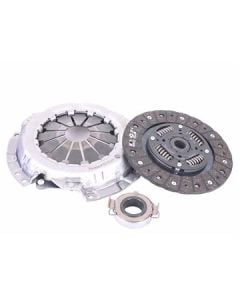Boost Your Driving Experience with Toyota Tazz Engine for Sale
Boost Your Driving Experience with Toyota Tazz Engine for Sale
Blog Article
Engine Purchasing Professional Tips on Selecting the Right Engine for Your Details Requirements
Choosing the best engine for your specific needs entails an intricate interaction of aspects that go beyond mere horsepower numbers. By diving into the intricacies of power versus performance, reviewing gas scores, and budgeting for long-term prices, one can genuinely enhance their engine selection.
Power Vs. Performance: Discovering the Balance
When choosing an engine, it is important to strike an equilibrium in between power and performance to fulfill your certain requirements successfully. Power refers to the engine's capability to generate energy for propulsion, determining variables like velocity, pulling capability, and general performance (Toyota Tazz Engine For Sale). On the other hand, efficiency associates to how well the engine makes use of gas to produce power, impacting factors such as gas economic situation and ecological friendliness
Attaining the ideal balance between power and efficiency is essential due to the fact that an engine that is as well powerful may consume too much gas, causing higher operating prices and unneeded stress on the atmosphere. On the other hand, an engine that prioritizes efficiency over power might result in slow efficiency, particularly in requiring circumstances like hauling heavy tons or driving uphill.
To make an educated choice, take into consideration variables such as your normal driving problems, the intended usage of the lorry, and your personal preferences. By evaluating your concerns and needs, you can choose an engine that strikes the perfect balance between power and performance, ensuring ideal efficiency while decreasing environmental effect and operating prices.
Understanding Engine Size and Type

Furthermore, engine kind plays a crucial role in determining the performance features of an engine. Common engine types consist of inline engines, V engines, and rotary engines, each with its special benefits and downsides. The engine type influences variables such as the engine's dimension, weight distribution, and power delivery. Comprehending the interplay in between engine dimension and kind is essential in choosing an engine that aligns with your details requirements and priorities, whether it be power, effectiveness, or a balance of both.
Consider Your Lorry's Demands
Considering your car's requirements is a basic action in the engine selection procedure to guarantee optimal efficiency and performance. It is vital to review aspects such as the meant use the vehicle, its weight, lugging capability, and fuel performance requirements. For example, if you are trying to find an engine for a heavy-duty truck that will be utilized for towing, you will need an effective engine with high torque abilities. On page the other hand, if you are picking an engine for a small vehicle mostly used for city commuting, gas efficiency might be a much more essential element to take into consideration.

Reviewing Fuel Effectiveness Rankings
Evaluating gas performance ratings is a vital element of picking the appropriate engine for your vehicle, making sure price savings and environmental sustainability. Fuel effectiveness rankings, commonly measured in miles per gallon (MPG) for gasoline engines or kilowatt-hours per 100 miles (kWh/100 miles) for electrical engines, show how far an automobile can take a trip on a certain quantity of gas or electricity. Higher MPG or lower kWh/100 miles worths indicate extra reliable engines, converting to lowered fuel costs and lower carbon discharges.
Furthermore, contrast different engine alternatives within the same automobile course to identify the most affordable choice. Elements such as engine dimension, weight, aerodynamics, and hybrid or electrical capabilities can all influence gas efficiency.
Budgeting for Long-Term Expenses
Strategically planning for long-term expenses is vital when picking an engine, ensuring financial sustainability over the vehicle's lifespan. While the initial acquisition price of an engine is a considerable aspect, it is vital to think about the long-lasting expenses linked with upkeep, fixings, and gas intake.
In addition, looking into the availability and cost of replacement parts for the picked engine is vital in spending plan find more information preparation. Engines with budget friendly and easily available parts can considerably impact lasting upkeep expenditures. In addition, thinking about the engine's longevity and anticipated life expectancy can assist stay clear of unexpected replacement prices in the future. By meticulously budgeting for these lasting expenditures and factoring them right into the decision-making process, individuals can select an engine that not just meets their prompt needs yet likewise continues to be cost-efficient throughout its lifespan.
Conclusion
In verdict, selecting the best engine for your details needs needs stabilizing power and effectiveness, understanding look at these guys engine size and type, considering your automobile's requirements, assessing gas efficiency scores, and budgeting for lasting costs. By thoroughly taking into consideration these elements, you can make sure that you choose an engine that fulfills your needs and offers optimum efficiency for your car.
To additionally refine the choice procedure of an engine that strikes the optimum balance between power and effectiveness, it is essential to dive right into the intricacies of comprehending engine dimension and kind. Engine dimension refers to the complete quantity of air and fuel that can be pushed via the engine cylinders. Typical engine kinds include inline engines, V engines, and rotating engines, each with its distinct benefits and drawbacks. Comprehending the interaction in between engine size and kind is vital in choosing an engine that lines up with your details needs and concerns, whether it be power, effectiveness, or a balance of both.
Fuel effectiveness rankings, generally determined in miles per gallon (MPG) for gas engines or kilowatt-hours per 100 miles (kWh/100 miles) for electrical engines, suggest exactly how far a car can travel on a particular amount of fuel or electrical power.
Report this page